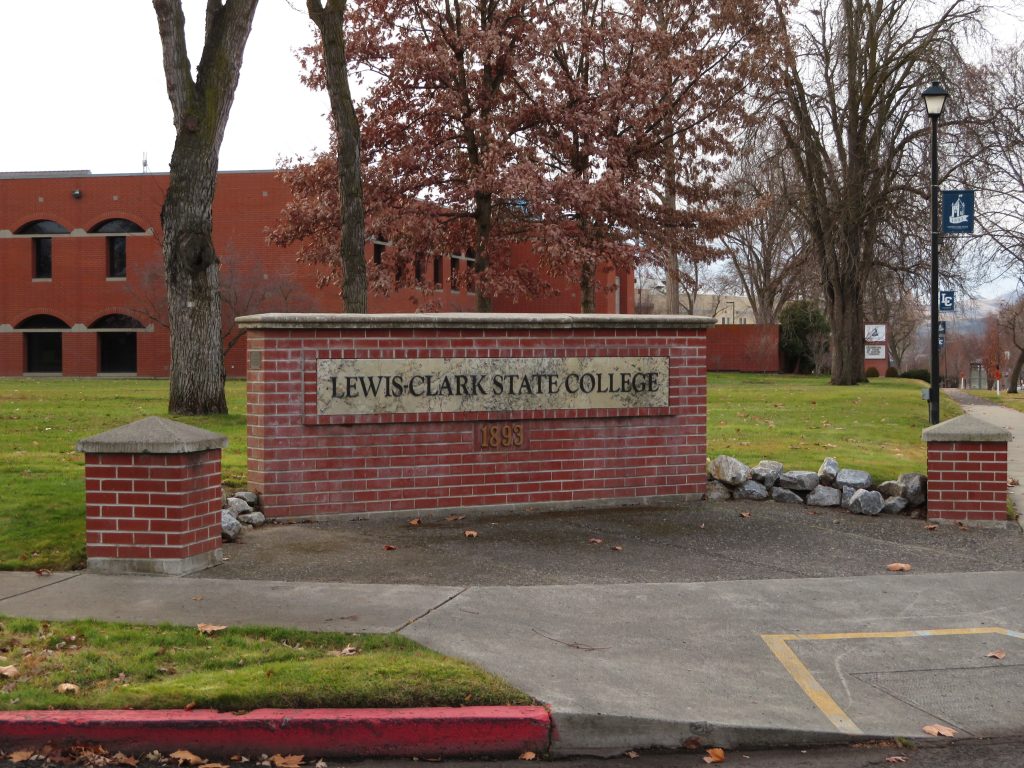Idaho college, citing state law, removes abortion-related art exhibits
First posted April 3, 2023 12:52pm EDT
Last updated April 3, 2023 12:52pm EDT
All Associated Themes:
- Artistic Expression
- Protest Politics
External References
Artwork referring to abortion removed from Idaho public college exhibition, The Guardian
An Idaho College Removes Artwork About Abortion, Citing a State Law, The New York Times
Idaho college censors portions of art exhibit for discussing abortion, Louisiana Illuminator
Idaho universities disallow abortion, contraception referrals for students, PBS

Lewis-Clark State College removed the work of three artists from an exhibit on health issues, over concerns that the pieces violated Idaho’s No Public Funds for Abortion Act, which bars state funds from being used to “promote,” “counsel in favor of,” or “refer for” abortions.
Key Players
Lewis-Clark State College (LC State), a small public institution located in Lewiston, told three artists that their work could not be included in the month-long exhibit “Unconditional Care,” which “explores today’s most pressing health issues and shares the stories and concerns of those most directly impacted by them.”
Katrina Majkut, Michelle Hartney, and Lydia Nobles are professional artists whose work was slated to appear in “Unconditional Care,” until they were notified days before its opening that it violated state law. Their art portrayed the exhibit’s theme through the lens of abortion, birth control, and bodily autonomy. Majkut was the exhibit’s guest curator.
Further Details
The No Public Funds for Abortion Act prohibits, among other things, public funds from being used in any form that seemingly supports abortion — whether counseling in favor of, promoting, referring for, or performing the procedure — by any entity that operates on or receives money from Idaho’s government. In May 2021, Gov. Brad Little (R) signed the bill into law as a trigger law, which took effect on Aug. 25, 2022, two months after the U.S. Supreme Court voted 6-3 to overturn Roe v. Wade, the 1973 case that established the constitutional right to abortion.
While the law does not block instructors from discussing abortion within a classroom setting, they must remain unbiased, and their instruction must not be construed to support it. In September 2022, the law received national attention after the University of Idaho and Boise State University advised all employees that they could risk being charged with a felony if they spoke out in support of abortion or matters related to contraceptives.
“Unconditional Care: Listening to people’s health needs” was scheduled to run from early March to late April 2023. Just days before its March 3 opening, Hartney, Nobles, and Majkut were told their pieces would not be displayed. LC State’s communications director announced that the school’s actions followed advice from legal counsel that the artists’ work violated state law. It was unclear who had referred the pieces to counsel for review.
Majkut’s work depicted two abortifacients — mifepristone and misoprostol — set against text that discussed the medications, their uses, and Idaho’s laws concerning them.
Hartney’s piece was an artistic transcription of a letter written to Planned Parenthood founder Margaret Sanger by a woman who had abortions in the 1920s. Notably, the letter did not advocate for abortion or present it in a particularly positive light; rather, it detailed a woman’s struggle with her health and the health care system after having two abortions.
Nobles’ exhibit “As I Sit Waiting” was also removed. The multimedia piece consisted of abstract sculptures that resembled waiting room chairs, which corresponded to videos and audio recordings of women detailing their experiences having an abortion, undergoing multifetal reduction surgery, or being forced to carry their baby to full term because of state law.
All three artists maintained that their work was not designed to promote abortion. When asked by the director of the LC State center hosting “Unconditional Care” whether her piece promoted abortion, Nobles said it presented “unbiased, first-person accounts.”
Majkut also decried the college’s censorship of her art and its implications for academic and artistic freedom, saying, “As an artist, I’m always operating under the assumption that I can do my work under First Amendment rights, and the fact that I’m doing so educationally and objectively, in a way that’s not biased, in an academic setting, I would’ve thought these things would be OK.”
Outcome
Free Speech and civil rights groups denounce censorship
Nobles reached out to the American Civil Liberties Union (ACLU). On March 3, in conjunction with the National Coalition Against Censorship, the ACLU sent a letter to LC State president Cynthia Pemberton, accusing the college of threatening the “bedrock First Amendment.” The letter argued that Nobles’ artwork depicts individual narratives, many of which highlight often-overlooked aspects of reproductive health.
Additionally, PEN America called the situation a “draconian act of censorship,” and the Foundation for Individual Rights and Expression (FIRE) claimed that “LCSC’s interpretation of the NPFAA will place the college on a collision course with the First Amendment rights of its students and faculty.” FIRE also accused the college of misconstruing the bill’s language by equating speech that promotes abortion with speech that simply “mentions abortion in a policy, personal, or political context.”
Anti-abortion event permitted at Boise State
Notably, on March 7, Boise State University held an event entitled “Adolf Who? The Bloodbath of Margaret Sanger,” which was planned and funded by students.The event, marketed as an “exposé on Planned Parenthood founder Margaret Sanger,” featured Seth Gruber, an anti-abortion activist and founder of the White Rose Resistance, a group that considers abortion “a silent and far more deadly holocaust” than Nazi Germany, from which the organization’s name originates.